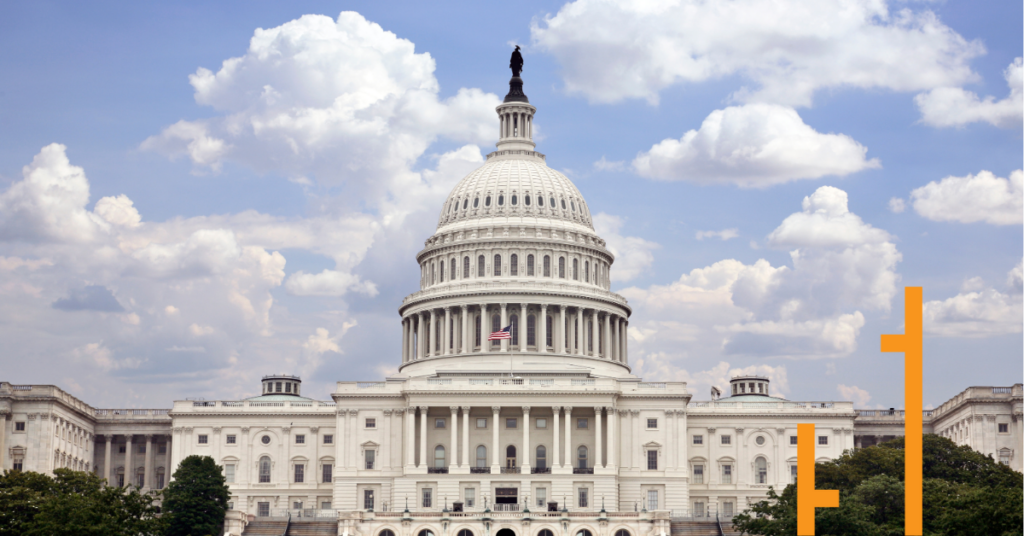
Should foreign investors be concerned about the “Big Beautiful Tax Bill”?
The Trump Administration’s “One Big Beautiful Bill Act” is a gargantuan piece of legislation. Clocking in at over 1,000 pages and with a word count of over 150,000, close to Bram Stroker’s classic novel Dracula, the act will touch on just about every part of the US monetary system—and beyond. The impacts will, of course, not just be confined to the United States but could have direct and indirect consequences far outside US borders. So, let’s take a look at the bill and see what implications its passage might have for global traders investing in the US stock market.
What effect could these have on individual investors?
The biggest direct impact for global traders would come from Section 899, titled “ENFORCEMENT OF REMEDIES AGAINST UNFAIR FOREIGN TAXES.” This section aims to place restrictions on investments from foreign countries deemed ‘discriminatory’ by the US Treasury.
At present, dividends paid to foreign investors in the US are currently taxed at 30%, or a lower rate depending on tax treaties with the investor’s country and capital gains (e.g., the gains received from the increase in a share’s price) are not taxed for foreign investors. However, Section 899 stipulates that the US Treasury could increase the withholding tax rate on dividends, interest, or royalties, even beyond treaty rates. In addition to this, the US Treasury could also apply tax to capital gains from US stock sales, even if not normally taxed.
This section further stipulates that these new tax rates would increase by an additional 5 percent for each calendar year after section 899 has been implemented, capped at 20 percentage points over the statutory rate.
How does the bill define discriminatory countries?
To quote the bill directly, a discriminatory foreign country is defined as “any foreign country which has one or more unfair foreign taxes.”
So, what is an unfair tax then? The section defines one as a “tax enacted with a public or stated purpose indicating the tax will be economically borne, directly or indirectly, disproportionately by United States persons.”
According to global lawyers Gibson Dunn, this definition could include UTPR, digital services tax, and diverted profits tax, though the section does not define these specifically. If the definition is taken this broadly, this would include Australia and many European countries.
What broader impacts could Section 899 of the bill have?
While traders’ individual investments could be impacted, significant impacts would also be seen in investment funds, notably superannuation funds in Australia, which invest heavily in global markets, including the US. The Australian Financial Review states that if the bill was enacted as-is, “major superannuation funds could see returns from their American investments fall by nearly $3.5 billion over four years.”
When could we see the effects of Section 899?
At present, the Big Beautiful Tax Bill has passed the House of Representatives and must now be debated, amended, and passed through the Senate. Given the massive scope of the bill, that will likely take some time. However, if the bill is passed before September 30th, the laws will come into effect on the 1st of January, 2026.
What can be done to prepare?
At this stage, the bill has not yet passed, so there is no point in making any moves yet. There is every chance that Section 899 will be altered or removed entirely. Additionally, there is a growing chorus of Senate Republicans calling for the bill to be broken into smaller, more manageable parts which can be debated individually, so the whole process may need to begin again.
In Summary
For now, the “Big Beautiful Tax Bill” remains a work in progress, and key provisions like Section 899 could still change significantly before becoming law — or may not pass at all. The bill raises a number of concerns for both individual and professional traders investing in the US market. If Section 899 does advance, there will likely be a window of time to adjust investment strategies ahead of implementation. As always, we preach a diversified investment approach, encompassing multiple low-correlated strategies.

